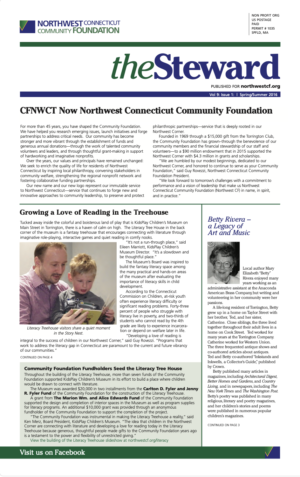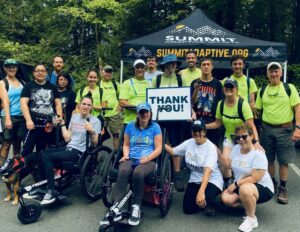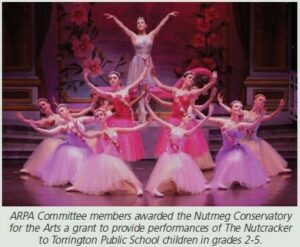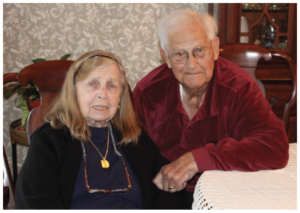
CFNWCT Now Northwest Connecticut Community Foundation
For more than 45 years, you have shaped the Community Foundation. We have helped you research emerging issues, launch initiatives, and forge partnerships to address critical needs. Our community has become stronger and more vibrant through the establishment of funds and generous annual donations—through the work of talented community volunteers and leaders, and through thoughtful grant-making in support of hardworking and imaginative nonprofits.
Over the years, our values and principals have remained unchanged: We seek to enrich the quality of life for residents of Northwest Connecticut by inspiring local philanthropy, convening stakeholders in community welfare, strengthening the regional nonprofit network, and fostering collaborative funding partnerships.
Our new name and our new logo represent our immutable service to Northwest Connecticut—service that continues to forge new and innovative approaches to community leadership, to preserve and protect philanthropic partnerships—service that is deeply rooted in our Northwest Corner.
Founded in 1969 through a $15,000 gift from the Torrington Club, the Community Foundation has grown—through the benevolence of our community members and the financial stewardship of our staff and volunteers—to a $90 million endowment that in 2015 supported the Northwest Corner with $4.3 million in grants and scholarships.
“We are humbled by our modest beginnings, dedicated to our Northwest Corner, and honored to continue to serve as your Community Foundation,” said Guy Rovezzi, Northwest Connecticut Community Foundation President.
“We look forward to tomorrow’s challenges with a commitment to performance and a vision of leadership that make us Northwest Connecticut Community Foundation (Northwest CF) in name, in spirit, and in practice.”
Growing a Love of Reading in the Treehouse
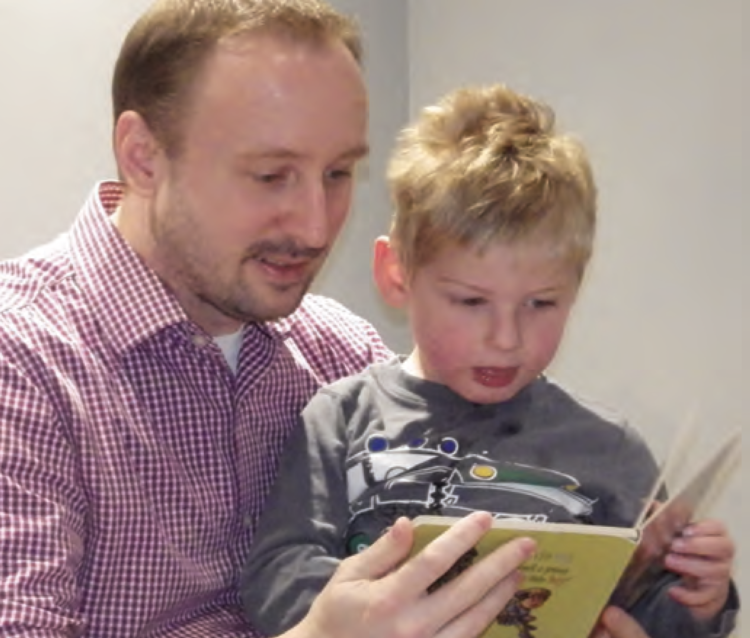
Tucked away inside the colorful and boisterous land of play that is KidsPlay Children’s Museum on Main Street in Torrington, there is a haven of calm on high. The Literacy Tree House in the back corner of the museum is a fantasy treehouse that encourages connecting with literature through imaginative role-playing, interactive games, and quiet reading in comfy nooks.
“It’s not a run-through place,” said Eileen Marriott, KidsPlay Children’s Museum Director. “It’s a slowdown and be thoughtful place.” The Museum’s Board was inspired to build the fantasy literacy space among the many practical and hands-on areas of the museum after evaluating the importance of literacy skills in child development.
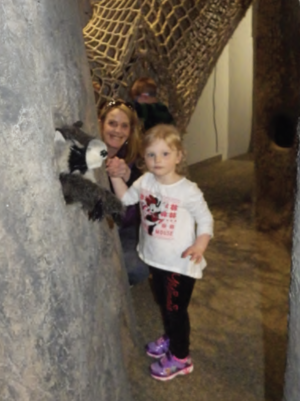
According to the Connecticut Commission on Children, at-risk youth often experience literacy difficulty or significant reading problems. Forty-three percent of people who struggle with literacy live in poverty, and two-thirds of students who cannot read by the 4th grade are likely to experience incarceration or depend on welfare later in life.
“Developing a love of reading is integral to the success of children in our Northwest Corner,” said Guy Rovezzi. “Programs that work to address the literacy gap in Connecticut are paramount to the current and future vibrancy of our communities.”
At the Literacy Treehouse, hundreds of children a week climb the wooden steps nestled between reaching oak trees to a rickety bridge that leads to the Club House. There, they play with storyboards filled with felt characters inspired by literary figures. Around the corner, a slide of thick netting delivers them to the base of the Constellation Tree, where woodland puppet animals poke from tree hollows. Inside the great oak, stars light up the evening sky.
In the Story Nest, set atop the highest landing, children can snuggle up with a book plucked from a growing collection expected to reach more than 1,500 stories chosen by donors and librarians from Oliver Wolcott and Center School libraries in Litchfield. Museum staff cycle the books in the Story Nest to ensure that children always find something new. In the Story Nest, children can dress up as the characters they’re reading about. Hooded costumes, including owls, bears, foxes, and deer currently being designed by local theatrical designer Susan Aziz, envelope children in character.
According to staff, the Literacy Treehouse is one of the most popular areas of the Museum, which welcomes more than 27,000 visitors a year. Events, including author visits, readings, and writing programs often are held in the Treehouse.
“There is always someone reading or being read to in the Treehouse,” said Eileen. “And, they don’t go there just to read,” said Louis Tomaino, Exhibits and Facilities Specialist at KidsPlay Children’s Museum, “they enter the story—dress up like a fox or little red riding hood in the treehouse and get their whole selves into the story.”
“Children get drawn to the space,” said Eileen. “It’s common to see a child leading her mother up the stairs saying, ‘Mommy, this is where you go to read.’ There is an energy in the Treehouse that just doesn’t exist anywhere else.”
Community Foundation Fundholders Seed the Literacy Tree House
Throughout the building of the Literacy Treehouse, more than seven funds of the Community Foundation supported KidsPlay Children’s Museum in its effort to build a place where children would be drawn to connect with literature.
The Museum was awarded $20,000 in two installments from the Carlton D. Fyler and Jenny R. Fyler Fund of the Community Foundation for the construction of the Literacy Treehouse. A grant from The Marion Wm. and Alice Edwards Fund of the Community Foundation supported the design and completion of interior spaces in the Museum as well as program supplies for literacy programs. An additional $10,000 grant was provided through an anonymous fundholder of the Community Foundation to support the completion of the project.
“The Community Foundation was instrumental in making the Literacy Treehouse a reality,” said Ken Merz, Board President, KidsPlay Children’s Museum. “The idea that children in the Northwest Corner are connecting with literature and developing a love for reading today in the Literacy Treehouse because generous, thoughtful people made gifts to the Community Foundation years ago is a testament to the power and flexibility of unrestricted giving.”
Betty Rivera – a Legacy of Art and Music
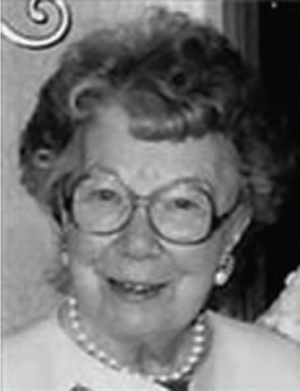
Local author Mary Elizabeth “Betty” Rivera enjoyed many years working as an administrative assistant at the Anaconda American Brass Company, but writing and volunteering in her community were her passions.
A life-long resident of Torrington, Betty grew up in a home on Taylor Street with her brother, Ted, and her sister, Catherine. Close siblings, the three lived together throughout their adult lives in a home on Cook Street. Ted worked for many years at the Torrington Company. Catherine worked for Western Union. The three frequented antique shows and co-authored articles about antiques. Ted and Betty co-authored “Inkstands and Inkwells, a Collector’s Guide,” published by Crown.
Betty published many articles in magazines, including Architectural Digest, Better Homes and Gardens, and Country Living, and in newspapers, including The New York Times and The Washington Post. Betty’s poetry was published in many religious, literary, and poetry magazines, and her children’s stories and poems were published in numerous popular children’s magazines.
Betty was a member of the Torrington Historical Society, the Torrington Historical Preservation Program, the Charlotte Hungerford Hospital Auxiliary, the Connecticut ARCO Retirees, the University of Connecticut Litchfield County Writer’s Project, and the Quota Club. She was a past President of the Torrconn Woman’s Club and the Torrington Council of Catholic Women.
“Torrington was their life,” said Susan Yost, a second cousin and close friend. “They were passionate about art and music.”
In 1995, Ted passed away, leaving his estate to Betty and Catherine. And, in early 2014, Catherine passed away, leaving the remainder of her estate and her half of Ted’s estate to Betty.
In the Spring of 2014, Mary Elizabeth “Betty” Rivera passed away, but she left a legacy that continues her creative life’s work and honors her brother and sister. Through bequest language in her will, Ms. Rivera established The Rivera Family Fund for Arts and Music, an endowed scholarship fund that will support art and music students in the Northwest Corner forever.
Be What’s Possible…

Make the Northwest Corner part of your family. By including the Community Foundation in your will or trust, you can continue your life story through the causes that matter most to you. Working with your advisor, you can include language in your will or trust specifying that a gift be made to the Northwest Connecticut Community Foundation as part of your estate plan.
You can support the causes you care about and the community you love in several ways:
• Gift of a percentage of your estate.
• Gift of a specific dollar amount or asset.
• Gift from the balance or residue of your estate.
For more information, contact Bradford Hoar, VP of Philanthropic Services at bhoar@yournccf.org or (860) 626-1245.
Torrington Family Inspires Community, Helps Local Children
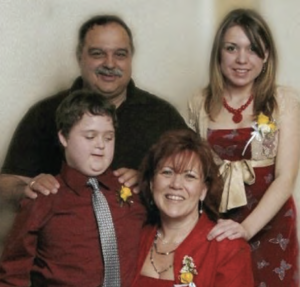
When Emil “Moe” Renzullo Jr. was five years old, he bounded out of Emil and Colleen Renzullo’s car for his first day of summer camp at Camp LARC. After having spent the first five years of his life in and out of Connecticut Children’s Medical Center recovering from surgeries to treat a series of intestinal medical issues, Moe was a happy and boisterous little boy ready to have some fun.
Moe attended summer camp through the Litchfield Arc (LARC) for two weeks that year. Although his parents, Emil and Colleen Renzullo, were apprehensive about sending him to summer camp, every day when he came home, happy, tired and dirty, Moe would ask, “When can I go back to my camp?” From that summer on, Moe attended Camp LARC all eight weeks of the summer: swimming, skateboarding, and more often than not, leading campers in their morning cheer.
“Moe was known for his enthusiasm, love, and caring ways,” said Katherine Marchand-Beyer, Camp MOE Director and LARC Director of Community Support.
After seven years of good health and happy summers with his friends, Moe was diagnosed with leukemia. He was admitted to the Connecticut Children’s Medical Center for treatment. Eight weeks later, Moe was gone.
“Emil [Moe] was a bright light,” said Emil Renzullo Senior, “…always happy, always smiling. He had an amazing ability to draw people together, to make friends, anywhere with anyone.”
Moe passed away at the age of 12, but his light spread through the Northwest Corner bringing together parents, teachers, camp counselors, friends, and family who wanted to honor his life. Cycling enthusiasts scheduled a cycling fundraiser, which quickly became a bike, run, and walk fundraiser as community members were drawn to the event and its goal—to raise money to send kids to Moe’s favorite place, Camp LARC.
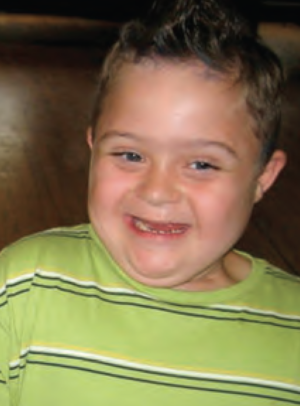
That first year, in just a few months, the community raised more than $25,000 for camperships for Camp LARC. Emil and Colleen quickly worked with Community Foundation staff to establish the Miles for Moe Fund. Simultaneously, LARC launched the first independent reverse-integrated summer camp in New England. To honor Moe and the community that loved him, LARC named its new summer camp Camp MOE.
“Moe always called Camp LARC ‘my camp,’” said Emil Renzullo. “Now you see signs all over town for Camp MOE. It really is his camp.”
Camp MOE has grown from 50 campers to hundreds of campers each summer. The Miles for Moe Fund continues to grow as well. Established as a donor-advised fund, the Fund continues to support camperships at Camp MOE, as well as other causes affecting children in the Northwest Corner.
Emil, Colleen, and a slew of volunteers manage the annual fundraisers, including the Harvest Fest 5k, held in September, for the Fund that has provided $80,500 in camperships. Grants from the Fund also have supported parents of children being treated for cancer at Connecticut Children’s Medical Center, purchased thermometers for the Medical Center’s treatment rooms, and supported the purchase of toys for children having medical procedures at Charlotte Hungerford Hospital.
“The Miles for Moe Fund has become what it is because of the Community Foundation,” said Emil Renzullo. “Anytime we had an idea or a question, staff was there to help. Life is short, and it’s about experiences. I want to raise as much money as possible, to make this one of the biggest funds at the Community Foundation—to help as many children as I can.”
Camp MOE: Summer fun for all
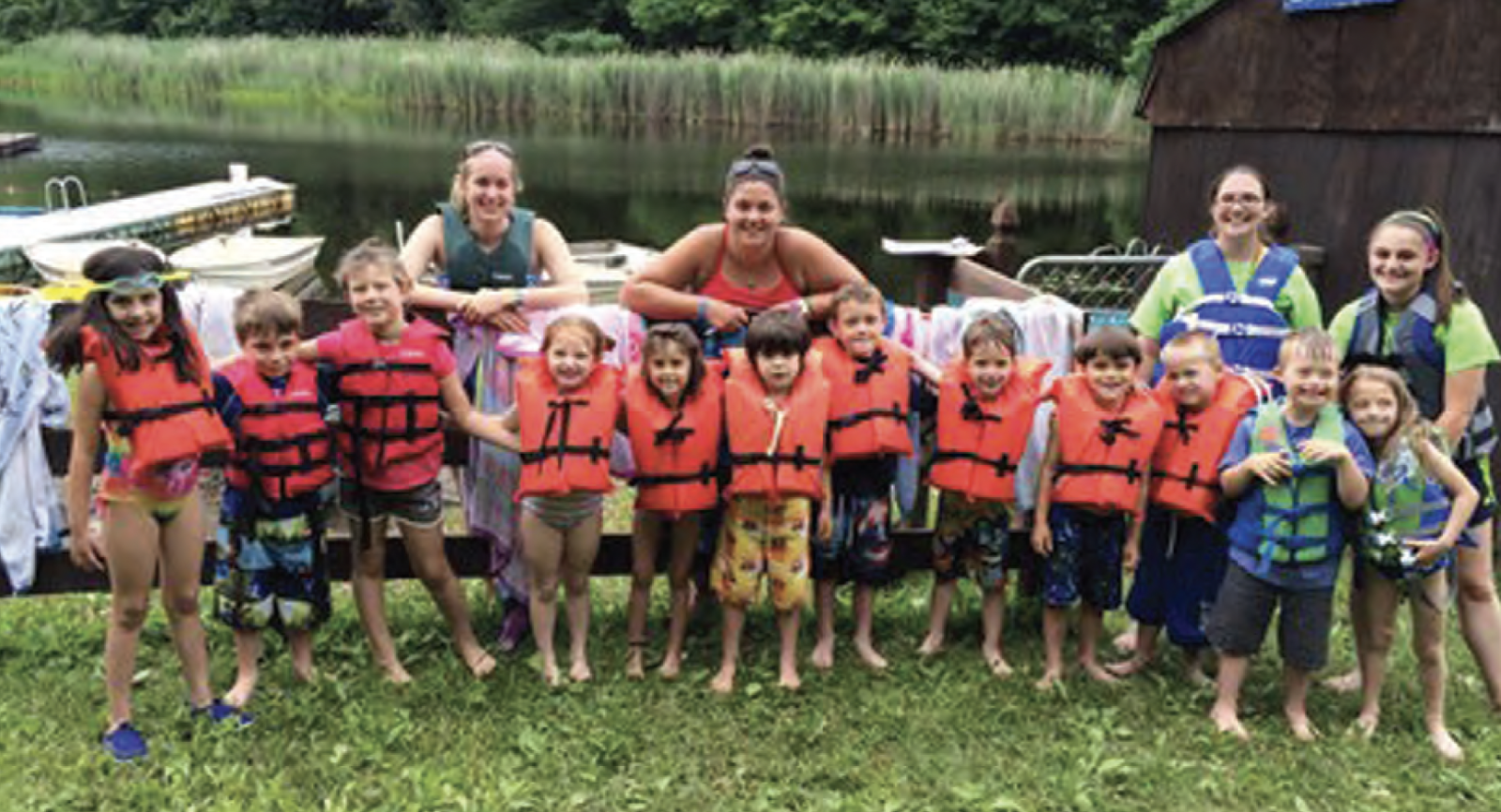
From June 27th through August 19th, hundreds of children from Litchfield County spill energetically and en masse onto the more than 165 acres of woods and fields adjacent to Whist Pond in Torrington to experience summer at Camp MOE. A program of LARC, Camp MOE brings together children with differing needs for a fun-filled summer in the Litchfield hills in the spirit of acceptance and respect for all.
“Camp MOE brings children together regardless of their strengths and weaknesses,” said Katherine. “Children should play together and grow together every step of the way, and what better way to encourage acceptance than to bring everyone together in a fun outdoor environment.”
LARC’s summer camp has been in operation for more than 40 years, but it wasn’t always inclusive. In its early years of operation, it was a summer camp exclusively for special-needs children. In the late 1970s, campers shared campgrounds, transportation, and other services with surrounding camps. Children’s activities operated separately until one inquisitive five-year-old “Chipmunk” camper pointed across the field, looked up at his counselor, and asked, “Why can’t I play with those kids over there?”
“Bit by bit we started having the children play together,” said Katherine. “It took us years to completely integrate our programs. Once we had all of the children together, we never looked back.”
LARC staff and volunteers developed a proposal to create a reverse-integrated summer camp and position LARC as a leader in integrating summer camping for children with and without special needs.
LARC was awarded a $10,000 grant from the Carlton D. Fyler and Jenny R. Fyler Fund and the Eva M. Coty Fund to support the creation of its new camp.
“We were fortunate enough to get the opportunity to show that we could do it,” said Katherine. “Without support from the Community Foundation, we really would have struggled.”
LARC’s new inclusive summer camp, the first in New England to offer an integrated program for children with and without special needs, was named Camp MOE in honor of camper Emil “Moe” Renzullo, who passed away in April of 2010.
Now in its sixth year, Camp MOE is a favorite among Litchfield County children. During any given summer about thirty percent of Camp MOE campers have special needs. Trained staff are on-hand to work with campers with autism, intellectual disabilities, ADHD, and behavioral difficulties, while they experience a summer filled with swimming, arts and crafts, music, dance, archery, gaga, boating, rubik, Lego, golf, and woodworking, alongside their typical peers.
Camp MOE continues to grow steadily with many campers receiving financial assistance, often through Community Foundation funds, including the Miles for Moe Fund, the Draper Foundation Fund, and the Eva M. Coty Fund.
“Requests are high for financial aid,” said Katherine. “We help as many families as we can to send their children to camp. Support from the Community Foundation validates that we are on the right path and puts a greater responsibility on us to continue to improve,” said Katherine. “We have so many goals for the future. We are a community camp, and we could not run without the support of our community.”
Helping Camp MOE - Over $108,000 in Grants
Funding startup, camp equipment, and campership.
Miles for Moe Fund $80,500
Eva M. Coty Fund $10,100
Carlton D. Fyler and Jenny R. Fyler Fund $8,000
Draper Foundation Fund $10,000
Weigold Family Fund $250
Cotiviti, Community Foundation Deliver Technology to Aspiring Minds
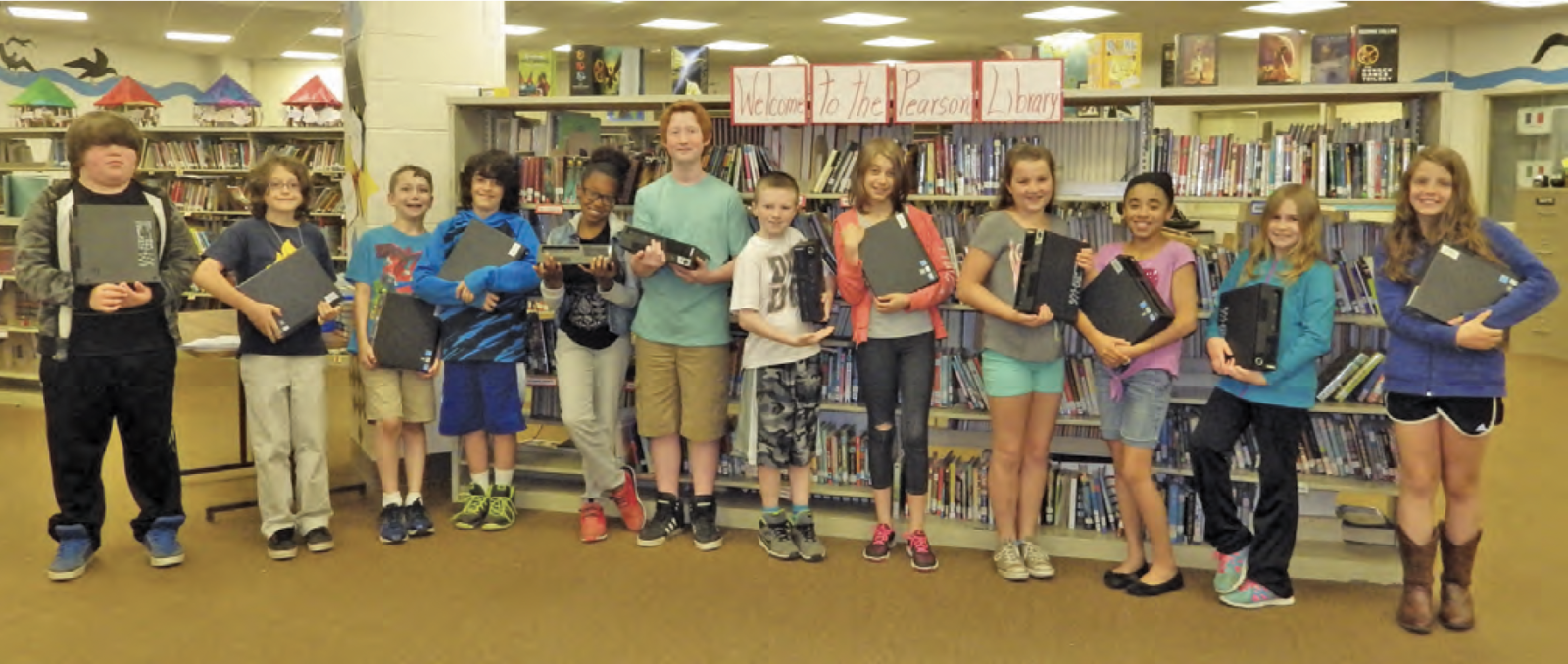
Corporate donor Cotiviti has donated 40 desktop computers through the Community Foundation to Winchester Public Schools. The computers will be placed in the Batcheller Early Learning Education Center and the Pearson Middle School.
In the Batcheller Early Learning Education Center, the computers replace much older machines in the school’s computer lab. In the Pearson Middle School, the computers will be used to create computer hubs in the school library as part of the school’s vision of transitioning the library into a research, creativity, and learning hub that enables students to research topics online and work on cloud-based creative projects.
"The Winchester Public Schools are extremely grateful for the donation from Cotiviti through the Community Foundation,” said Joe Cifaldi, Winchester Public Schools technology coordinator.
The desktop computers were part of a larger donation of more than 200 refurbished Lenovo laptop and desktop computers valued at more than $80,000 that were donated to the Community Foundation to be distributed to nonprofits throughout Northwest Connecticut.
Cotiviti is a leading payment accuracy provider that helps healthcare payers and retailers achieve their business objectives by unlocking value from the incongruities it discovers in the complex interactions they have with stakeholders.
Northwest Corner Girls Hack for a Cause
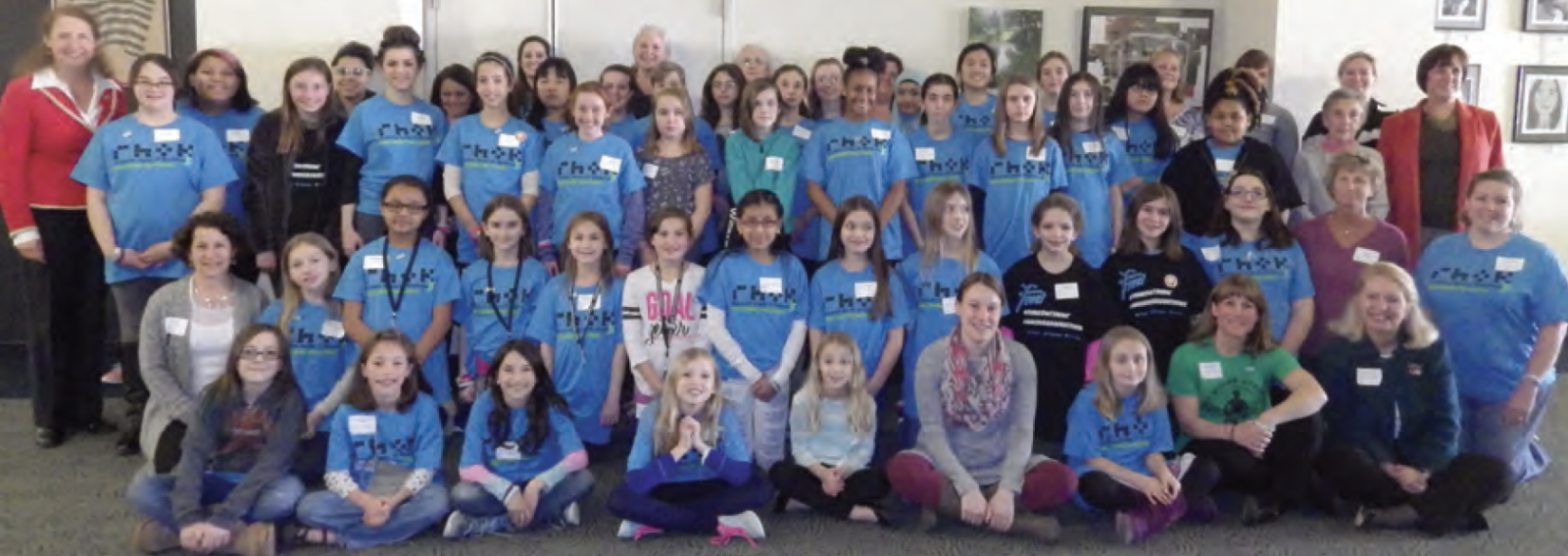
The Women & Girls Fund of the Community Foundation, in collaboration with Random Hacks of Kindness Jr, hosted a “hackathon” for social good for girls in grades four through eight on March 12 at the Warner Theatre in Torrington. At the event, girls from local high schools, who volunteered to act as mentors, worked with younger girls to devise computer applications and other technological prototypes that addressed a range of problems facing local nonprofits. Congresswoman Elizabeth Esty met with all of the girls to learn more about the apps they had created.
The event was a component of the Women & Girls Fund’s current priority to help build economic self-sufficiency in women by introducing STEM education initiatives for elementary school girls. According to the U.S. Department of Commerce, STEM (science, technology, engineering, and mathematics) workers earn 20 percent more than non-STEM workers and are far less likely to experience unemployment.
“I learned that coding is hard, but fun,” said elementary school student and Random Hacks of Kindness coder, Ellie, from Goshen. “I thought it would be boring or scary...It turned out to be fun and challenging.”
A number of nonprofit organizations in the Northwest Corner participated in the event, including Brooker Memorial, FISH of Northwestern CT, Susan B. Anthony Project, Prime Time House, Torrington Soup Kitchen, Winsted Area Child Care Center, and the Warner Theatre. Laptop computers for the event were provided by corporate donor Cotiviti through the Community Foundation.
The Women & Girls Fund brings together local philanthropy to address issues affecting women and girls and strives to empower women and girls in our communities to reach their full potential. Learn more about the Women & Girls Fund at yournccf.org/community-impact/womenandgirlsfund

